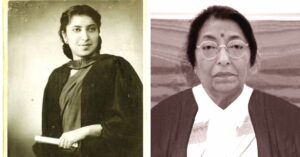Is Riding With a Drunk Driver an Offence? The Answer May Surprise You
While statistics show a decrease of drunk-driving accidents, they are nonetheless the deadliest—there were more fatalities in accidents due to drunk driving than in accidents due to other causes.

January 1999: the son of a famous industrialist was driving home after a party in Gurugram (then Gurgaon) when he ran over six people, of which three were police officers manning a checkpoint. This case was tried and re-tried and ultimately in 2008, the driver was found guilty.
December 2007: a minor driving a Mercedes Benz ran over 13 homeless people on the streets of Chennai (then Madras). Among the victims, two succumbed to injuries and died while 11 were hospitalised with varying degrees of injury. The young driver was subsequently bailed.
June 2015: a corporate lawyer returning home after a party rammed into a taxi causing the death of two. She secured bail and her case is still being tried.
May 2017: Sonika Chauhan and Vikram Chatterjee, popular faces on Bengali television, met with an accident on their way back home after a party. Sonika passed away while Vikram sustained injuries.
The common thread in all these incidents is how similar the narrative sounds. Time and again, the same incident seems to occur. A drunk driving accident, bail, long-drawn court cases which may or may not result in acquittal of the driver.
While statistics show a decrease of drunk-driving accidents, they are nonetheless the deadliest—there were more fatalities in accidents due to drunk driving than in accidents due to other causes.

Photo Source: Wikimedia Commons
You may also like: Caught Driving Drunk? Get Set to Hold up a Placard at the Traffic Signal.
In December 2016, the Supreme Court ordered all establishments serving and selling alcohol within 500 mt from the national and state highways to shut shop with effect from April 1, 2017. This forced all the effected establishments to put on their thinking caps, resulting in unique ways of complying with the order.
Not only the affected bars and restaurants, but also the government authorities were taking proactive interest in crafting creative solutions to address the issue, given the sheer scale of revenue losses. We only wish this ingenuity and talent could be used every day in a productive manner to address the genuine needs of the public.
You may also like: Meet the Man Whose PILLed to the SC Order Banning Highway Liquor Vends
On a serious note, the laws that govern drunk driving differ from one part of the country to another, since the subject of alcohol falls under the state list. Therefore each state has its own age limit and laws governing the sale and serving of alcohol.
While the law is clear on what the punishment for drunk-driving is, there are nevertheless grey areas. For instance, if the passenger knows that the driver is inebriated, can the former be held liable for the accident? Nupur Mukherjee, a legal consultant and a resident of Kolkata, raises an important point.
She says, “Drunk driving and speeding are all issues that need to be dealt with, however what about the passenger who is goading the driver to cross the speed limit? Or for the sheer thrill of speed urges the driver to drive recklessly? Shouldn’t the passenger also be held responsible for these acts?”

In September 2016, following a drunk driving incident in Chennai, the city police said that according to law, the passenger could be booked under the same charges as the driver. Additionally, they could also be booked under Section 109 of the Indian Penal Code, which deals with abetting a crime. The understanding here is that the passenger is abetting a crime even though not committing it himself.
Advocate Anirban Guhathakurta, who is representing Vikram Chatterjee in the ongoing case says, “Without commenting on this particular case (Vikram Chatterjee’s) I can say that Volenti non fit injuria (to a willing person, injury is not done) will apply in such cases. If the passenger voluntarily consents to a risk, they cannot later bring claim against the other party, for any injuries suffered by them.”
While the legal fraternity seems to be divided on whether or not the passenger should be booked in such cases, the police feel that there is no reason why the passenger should be let scot-free when an understanding of the driver being drunk is present.
Drinking and driving is both an irresponsible and reckless practice. Besides being unsafe for the driver, it also puts other passengers and often, innocent pedestrians at terrible risk. The Chennai police’s push for booking passengers as well under stringent laws may well prove to be a step in the right direction and encourage people to refrain from such indulgences.
Like this story? Or have something to share? Write to us: [email protected], or connect with us on Facebook and Twitter.
NEW: Click here to get positive news on WhatsApp!
This story made me
-
97
-
121
-
89
-
167
Tell Us More
We bring stories straight from the heart of India, to inspire millions and create a wave of impact. Our positive movement is growing bigger everyday, and we would love for you to join it.
Please contribute whatever you can, every little penny helps our team in bringing you more stories that support dreams and spread hope.



















